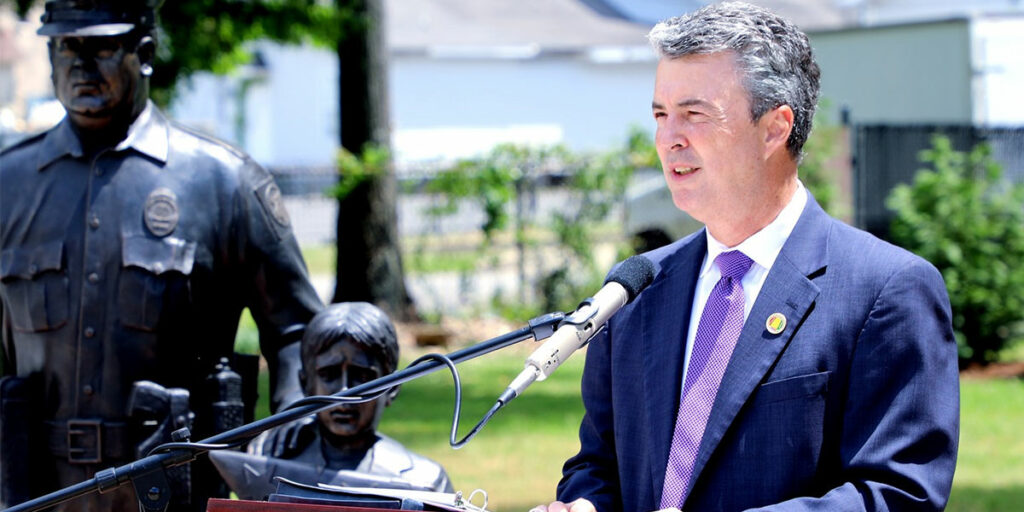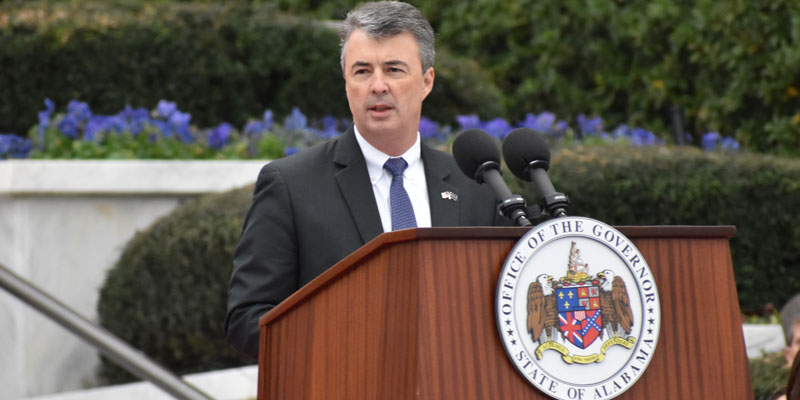With the death of Sergeant Nick Risner this weekend, our state has lost 10 law enforcement officers in 10 months and 24 officers in five years.
Sergeant Nick Risner was killed by a man whose name isn’t worth mentioning. That man had killed before—in fact, he killed his own father. In 2013, the man was sentenced to ten years in prison for manslaughter. A mere two-and-a-half years after entering prison, he was given the benefit of a parole hearing. His parole was denied.
While in prison, the man racked up a lengthy rap sheet. Records indicate that he got into a fight and seriously injured another inmate. He was disciplined for disobeying a correctional officer. He got caught with drugs in his possession, twice. Naturally, the man was awarded “good time,” provided for in statute, for this stellar behavior while incarcerated. As a result, the man served three years, two months, and fifteen days of his 10-year sentence. He was released from prison in May of 2016. Had he served the full length of his sentence, he would have been in prison, not in the Walmart parking lot, last Friday afternoon when Sergeant Risner was shot.
When the news of Sergeant Risner hit the wires over the weekend, politician after politician tweeted their support for law enforcement and their sympathy for the victims. But only days before, at the end of a five-day legislative session, a new law was enacted mandating that all inmates—including violent ones with histories just like this shooter’s—be let out of prison up to one year early to be “supervised” before the formal end of their sentence. Twenty-three house members and only six senators thought this was a bad idea.
Had this law been in effect when Sergeant Risner’s killer was initially sentenced, his 10-year sentence would have been reduced to a little over three years with automatic “good time,” and his paltry three years behind bars would’ve been further reduced to only two.
Consider too, that just six months ago, the legislature enacted yet another law that would reduce time served in prison under the “Education Incentive Time Act.” As introduced and passed unanimously by the Alabama Senate, rapists and murderers were to be considered for parole up to 12 months early for taking advantage of educational programming while in prison. Despite being publicly chided by a Republican member of the legislature for getting involved, my office successfully fought to have most violent offenders removed from this legislation.
Each time, the same tired rhetoric is used as justification for passage: our prisons are “overcrowded” and the inmates “are eventually going to get out anyway.” The current population of Alabama’s prisons is 81% violent. The population that is non-violent does not serve any appreciable time inside the prison walls. As evidenced by the “reforms” pushed last week, we are at a point where any further “reforms” will benefit primarily violent offenders—there is simply nobody else to “reform.”
I’m glad we’ve all agreed that we need to build prisons, but strangely, I seem to be alone in the view that most of our current prison population ought to stay locked up. The policymaking in this state is completely and utterly detached from what law enforcement and prosecutors see day in and day out. There must be a reckoning for the real-life consequences of these decisions. It is time that the Alabama public speak up and speak out about this dangerous, and seemingly endless, trajectory of “criminal justice reform.”
Your state leaders are not listening.
Steve Marshall is the 48th Attorney General of the State of Alabama













